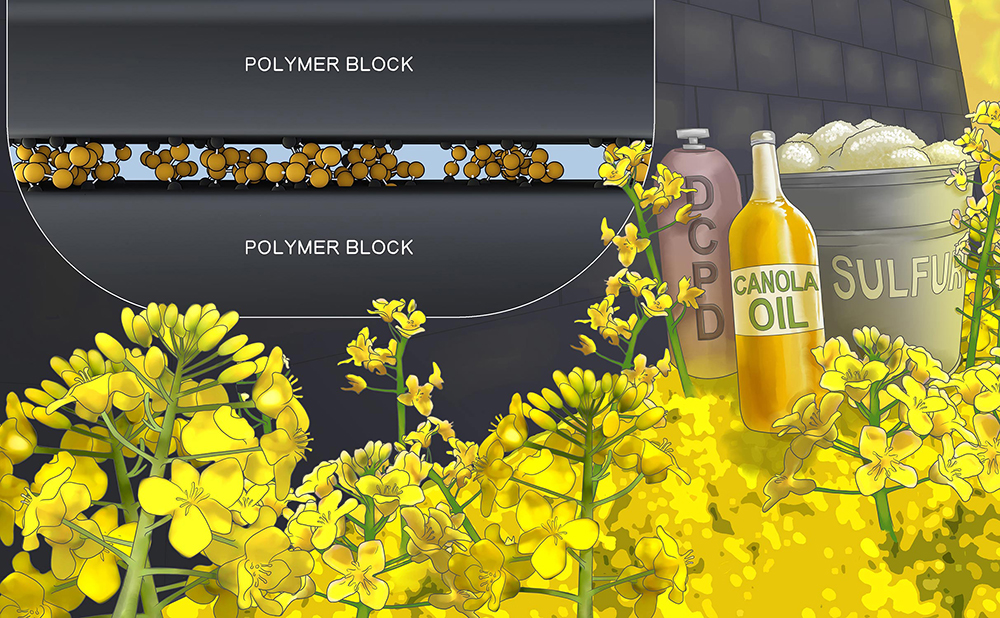
Firing bricks and making mortar and cement is very costly and resource intensive, but organic chemists at Flinders University are working on more sustainable alternatives – focusing on building materials made from waste products.
In another move into the circular economy, researchers from the Flinders Chalker Lab have used low-cost feedstocks to make lightweight but durable polymer building blocks which can be bonded together with an adhesive-free chemical reaction.
Their latest study tested the strength of these waste products and explored ways they can be reinforced in construction.
Matthew Flinders Professor of Chemistry, Justin Chalker, says the need to develop sustainable building materials is increasingly important, with cement, iron and steel production accounting for more than 15 per cent of global CO2 emissions each year.
“In this study, we tested a new type of brick we can make from waste cooking oil, mixed with sulphur and dicyclopentadiene (DCPD). Both sulphur and DCPD are byproducts of petroleum refining.
“The bricks bond together without mortar upon application of a trace amount of amine catalyst.
“All the starting materials are plentiful and can be classified as industrial waste.
“This research is part of a larger effort to move towards a sustainable built environment,” says Professor Chalker.
The latest study, published as a cover feature in a special issue on Sustainability in the journal Macromolecular Chemistry and Physics, expanded the research to test the new bricks’ mechanical properties and looks at ways to reinforce them in construction, including with carbon fibre fillers.
Chalker Lab research associate Dr Maximilian Mann says as well as repurposing waste materials into value-added construction materials, the polymer bricks’ sulphur-sulphur bond means they can be bound together without mortar like traditional building method.
“The bonding in this novel catalytic process is very strong, producing a sustainable construction material with its own mortar which will potentially streamline construction,” Dr Mann says.
First author Paris Pauling says the research is an excellent example of new scientific developments in sustainable materials science.









